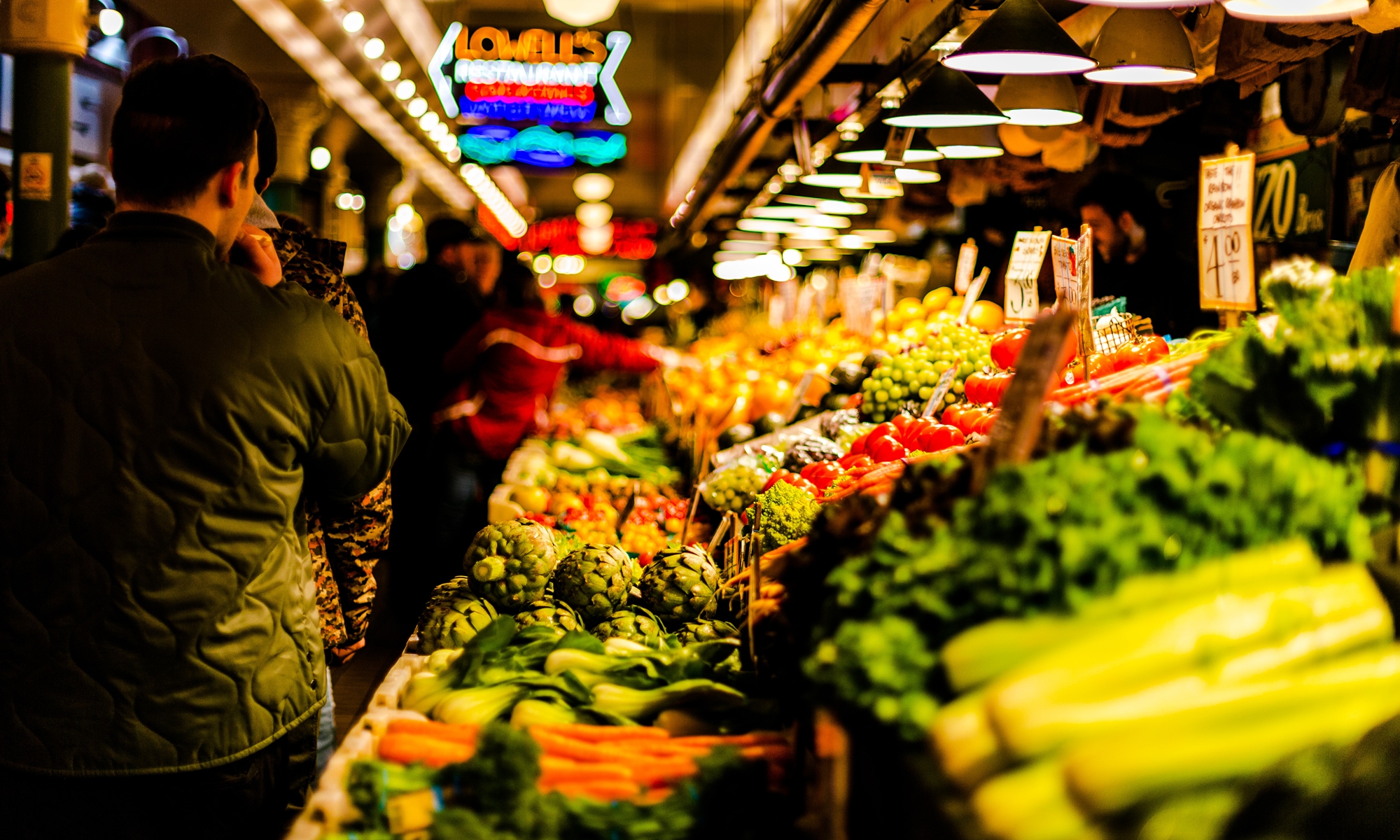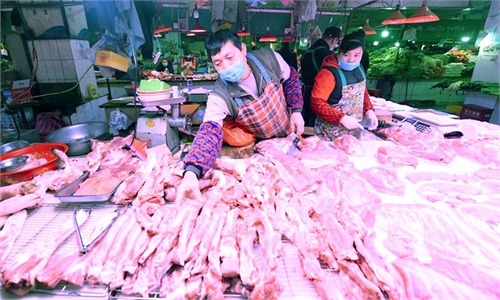Cold weather, logistics difficulties push up vegetable prices in major Chinese cities

Photo:Unsplash
Prices of fresh produce have seen fluctuations in China's major cities, as cold weather has hit supplies and tighter COVID-19 containment measures have lifted logistics costs.
A vegetable vendor at a wet market in Shanghai told the Global Times that the vegetables are more expensive than in the same period last year, and the price has risen a lot in the past few weeks.
"The Chinese cabbages are now at 2.5 yuan per half kilogram, up from 2 yuan in last week. And the price for greens has more than doubled to 6 yuan per half kilogram, up from 2.5 yuan at the end of last year," said the vendor.
She said the output of vegetables has dropped sharply due to the abnormally cold weather.
"There used to be four trucks of vegetables arriving at the wholesale market in the past but now there is only one truck," she said, adding that she has to get to the market by 5 am to stock up on the vegetables, or there would be nothing left.
In Beijing, prices of vegetables such as chili peppers have almost doubled, according to fresh produce suppliers, and prices of potatoes have also risen recently.
Li Xiangli, a manager at Jiacheng farmers' cooperative in Changli, Hebei Province told the Global Times that for each batch of vegetables supplied to Beijing, the cost of logistics has risen more than 30 percent.
In the neighboring cities around Beijing that supply the city's vegetables, local commerce and agricultural departments have been issuing instructions to farmers to ensure ample supply of fresh produce to Beijing at reasonable prices.
Wei Zhongyan, manager of the Tianlv vegetable farm cooperative from Gu'an in North China's Hebei Province, told the Global Times that the local commerce bureau has advised all fresh produce suppliers to increase their stock by 30 percent to meet the rising demand from Beijing during the Spring Festival.
"Because more people are expected to stay in Beijing during Spring festival this year, the government said the orders might be up," Wei said, "but so far we haven't seen any changes in orders from our clients."
Gu's cooperative currently provides around 20 tons of fresh vegetables to Beijing on a daily basis, and his clients include several restaurants and large supermarket chains. Gu told the Global Times that his sources of fresh produce include local farmers in Gu'an, as well as suppliers from Southwest China's Yunnan Province and East China's Shandong Province.
"We can easily increase our daily supply to around 50 tons a day," Gu said.
Li also told the Global Times that the local agricultural department has required local cooperatives to maintain a certain proportion of total fresh produce to supply to Beijing to ensure the expected rising demand can be met.
"We are required to supply at least 10 percent of our total daily supply to Beijing, which this season is around 1,000 tons," Li said.
However, the recent COVID-19 flare-ups in Hebei have added some uncertainties to the supply of fresh produce. From January 2 to Saturday, a total of 688 cases were confirmed in Hebei. On Sunday, another 32 cases were reported.
Wang Shunzhai, manager of the Shunzhai farmers' cooperative in Gu'an, Hebei, told the Global Times that getting fresh produce to Beijing now takes much longer but shipments are largely uninterrupted.
"Usually it takes only one to two hours to get to Beijing, but now it can take up to five hours," Wang said. "All truck drivers headed for Beijing must show the results of nucleic acid tests, and trucks must be thoroughly disinfected." Wang also told the Global Times that some vehicles from high-risk areas have been turned away from Beijing.

